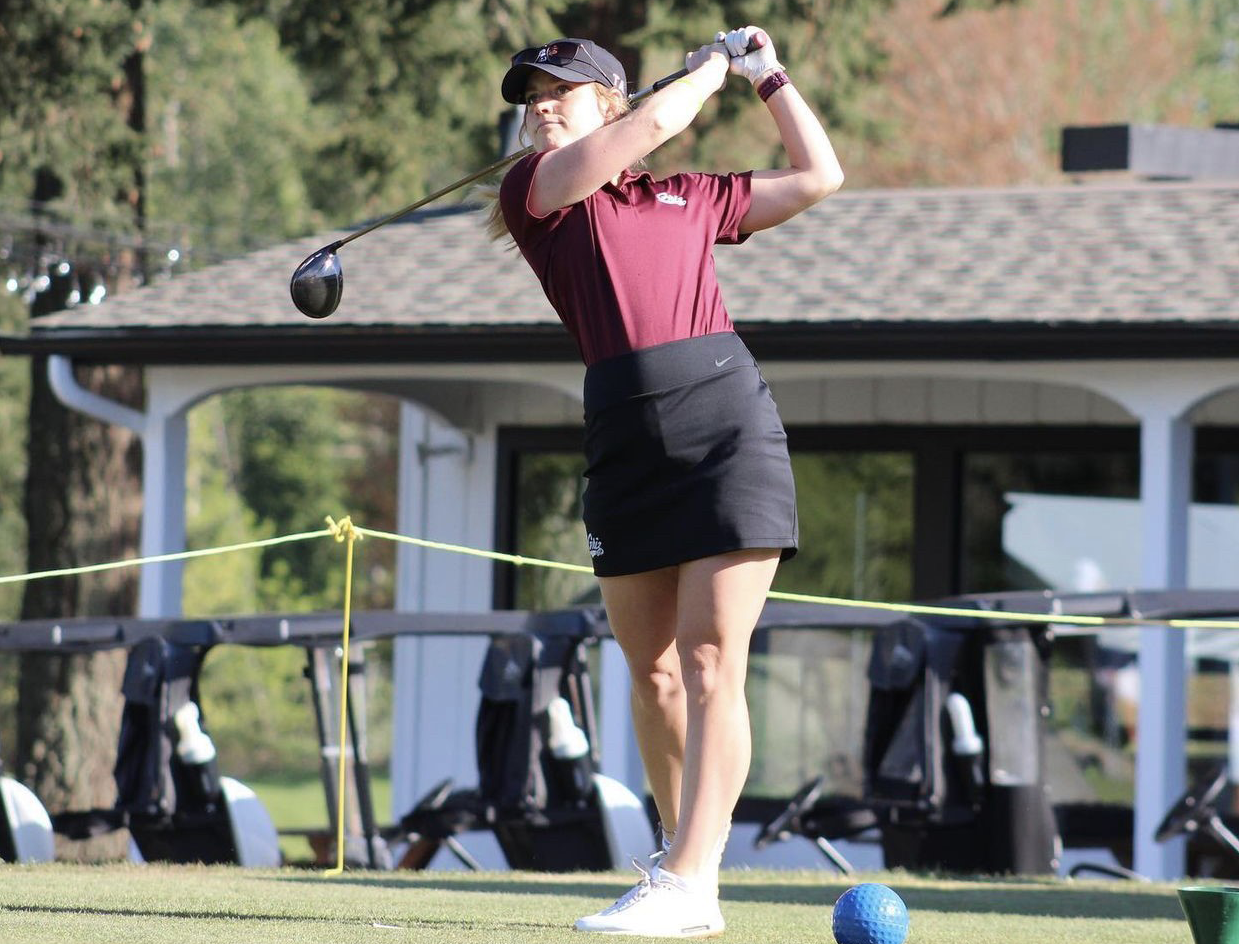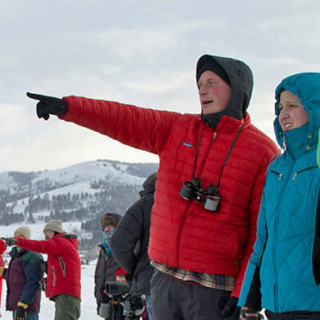Student Spotlight: Teigan Avery

In this episode, we hear from Bertha Morton winner Tiegan Avery (M.A., Economics) about how to help people make the best decisions for themselves, becoming her best academic self, and how vaccinations and economics are intertwined.
Story Transcript
KATRINA MULLAN: She does exceedingly well in her classwork that she’s been working on, but she’s notably been working at a level that’s far beyond what we would expect from a first-year master’s student. She goes for many things and puts everything into them and does all of them well. So, she can kind of take on a lot but really balance all the things that she does take on and deliver everything to a high standard, whatever she’s doing.
ASHBY KINCH: You just heard the voice of Dr. Katrina Mullan, professor of economics, talking about her student, Teigan Avery, one of the Bertha Morton graduate student scholarship winners for 2021-22! Welcome to Confluence, where great ideas flow together, the podcast of the graduate school of the University of Montana. I'm Ashby Kinch, associate dean of the graduate school. This episode of Confluence is part of a series recognizing the achievements of some of our outstanding graduate students. Named for a great Montanan who dedicated her life to public service, the Bertha Morton award was endowed to support graduate education by recognizing the distinctive contributions our graduate students make in research, creative activity, and public service. Tiegan exemplifies the serious, hardworking students that Bertha Morton sought to encourage. Her work in economics is already making an impact, as she has authored a review on the economics of child health, and another on the economic evidence for vaccine uptake, which was used to support faculty in the School of Public and Community Health Sciences during the recent vaccine rollout. We're proud to share her graduate story with listeners. Enjoy the float!
KINCH: So, thanks for joining us, Teigan!
TEIGAN AVERY: Yeah, thank you for having me. I'm grateful to be here.
KINCH: Well, so first off, congratulations, I mean, on winning this award. It's a wonderful award and, the Bertha Morton legacy means a lot to the University of Montana. Can you tell us a little bit about what inspired you to apply and how the Bertha Morton legacy you sort of see it connecting to your story?
AVERY: I was encouraged to apply for the Bertha Morton by Matt Taylor and Katrina Mullan and that led me to look more into who Bertha was. And I was so inspired by how she valued education and wanted to provide a scholarship for students to really become their best academic selves. And that's something that my parents have always encouraged me to do as well. So, Bertha’s legacy just really fit naturally into what I'm trying to do at UM is be my best self.
KINCH: That's a great phrase: best academic selves. And you were born in Montana and you did your undergraduate degree here as well. Tell us your story of sort of how you segued from your undergraduate into your graduate degree.
AVERY: Yeah, so I'm a native Montanan and the University of Montana has meant a great deal to me to be able to study in my home state. And last year, when the pandemic hit, I had been planning on taking a gap year just to kind of reset after a tough four years at the University of Montana. But I realized that the best time to go back to school is during a recession like COVID – the economist in me. So, I decided to apply for the Master’s of Economics program and was fortunate enough to get in. And it just precipitated me earning my graduate degree.
KINCH: You know, advising is such an important part of graduate education and your relationship with your advisor is so important. So, tell us a little bit more about your relationship with Katrina.
AVERY: I got to know Katrina in undergrad a little bit in the Friday coffees that the economics department always hosts, but actually I have not seen Katrina in person since I started working for her. We've only been meeting on Zoom but have developed a friendly relationship. I know her daughters and she knows what's going on in my life. And we're also producing really high-level work. And she is encouraging me to reach another level of academic skill and thought that I didn't even realize that I was capable of. I thought I was doing pretty well as it was, and Katrina has gotten me to level up to where I am now.
KINCH: Yeah, that's fantastic. And that's a story that we, you know, hear a lot among our graduate students, especially those that kind of move from being undergrads at UM to graduate students. They kind of – the pace changes, or the intensity changes, or they're just asked or just, demands go up and then they rise to those. And that's what graduate education is all about. Well, tell us a little bit more about the research. That work you're doing with her and your own research. What are the ideas that fire you up about economics?
AVERY: Yeah, the ideas that fire me up about economics are how to help people make the best decisions for themselves. Economics has this idea that individuals are self-interested, rational actors, and that they always make the best choices for themselves. But I think we all know that sometimes the best choice is hard to understand. And so, in my work with Katrina I'm really focusing on vaccinations and why is it that people don't get vaccinated or don't get their children vaccinated even though they would like to.
KINCH: Yeah.
AVERY: Not because they're hesitant, but because there are barriers in the way that prohibit them from making that, that choice or getting into the doctor's office.
KINCH: Yeah.
AVERY: So that's what really fires me up is, how can we help people overcome those barriers to be self-interested rational actors and not judge them, not shame them for not making those choices, but instead recognizing what's getting in their way.
KINCH: So, a range of social sciences might have sort of theoretical models for that – for why that's the case. What's unique about the economic frame on vaccine uptake. That really caught my attention because you think about the community and public health side of it or the psychology side of it. But what does economics bring to that set of questions that's different? That's a different angle on why people might choose not to do it.
AVERY: I had to think about that a lot in a public health course I took this semester in that economics thinks about it more in terms of what are the incentives people are facing, what is it that is getting in the way of a person making the healthy choice for them right now. So, it may not make sense if you aren't looking at those incentives as to why people are not getting vaccinated, but then when you see, oh, well they have to go to their hourly wage-earning job, and they can't find the time to go to the doctor's office that's nine to five because they're working nine to six.
KINCH: And they can't take the next day off if they have symptoms or if something is wrong.
AVERY: Yeah. So, looking at how the incentives force people into decisions that are not in their best interests and that that's not irrational because they're looking at what is in front of me right here right now and what are my options. And I'm going to take the best option for myself in the present. And it's harder to recognize what's best for you in the long-term. So that's what economics brings to the table is looking at the incentives people are facing and trying to align those incentives so that people can make a better choice for themselves. And that's the easier choice also.
KINCH: So, where do you see yourself? You know, so your end of your first year of your economics degree, kind of completing your second year, you'll write a thesis. What direction do you see your research taking and what do you see yourself beyond the degree?
AVERY: Well, I know that for my master's thesis here at UM I'm going to be looking into HPV vaccinations, human papilloma virus, which is an amazing vaccination. It prevents cancer and understanding what gets in the way of adolescents getting their full vaccination series. And I hope to translate my master's thesis into a doctoral program. Unfortunately, the state of Montana does not have an economics doctoral program, so I will have to leave my beloved state. But I hope to continue the work that I've started in my master's program: investigating how public health structures can be aligned to make it less costly for people to make the best decisions for themselves and to make the easy option, the better option for them.
KINCH: So, you’ll go onto a Ph.D. and do you kind of see yourself heading into academics or do you see yourself potentially moving into, I mean, especially this research is very importantly applied, right? It has really important direct applications to policy, kind of how do you outline or have you made that choice, you know, framed it yet for yourself, speaking of decision-making.
AVERY: I've learned that it's best to have a plan, but understand that the plan can be blown up in the course of a day. So, my plan, as of right now, is I would really love to be a professor of economics and to teach students, to mentor students like I have been here at UM and also conduct my own research and help add to the body of knowledge we know about how human beings make decisions. So, ideally, I would be a professor. And if not, I would love to go into public policy and help enact these policies that I'm researching and specifically focus on rural communities, which face a unique challenge in the public health sphere – both in America and globally.
KINCH: Well, thank you for joining us on Confluence, Teigan.
AVERY: Yeah, thank you so much for having me.
KINCH: If you enjoyed this episode of Confluence, subscribe to our podcast feed at Apple, Google, Spotify, or Stitcher. Make sure to rate and review to support our enterprise of bringing you the voices of graduate education at the University of Montana! See you on the next float.
